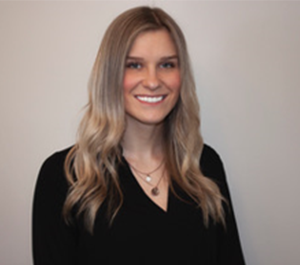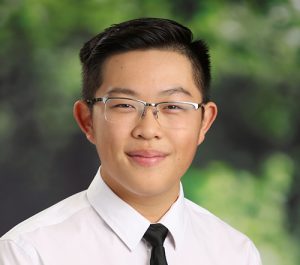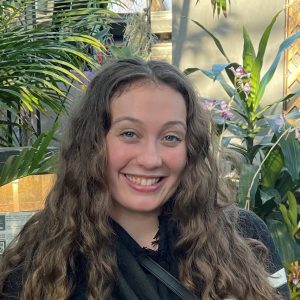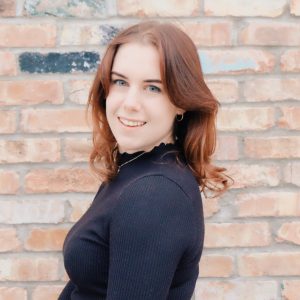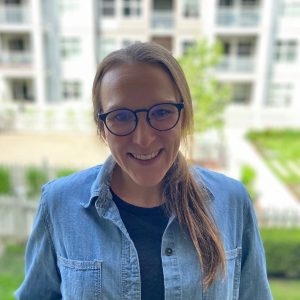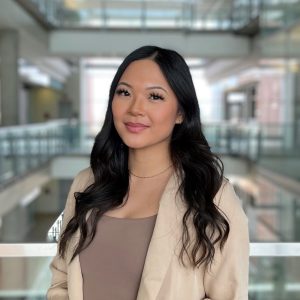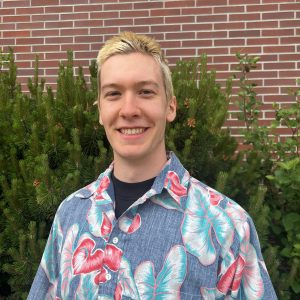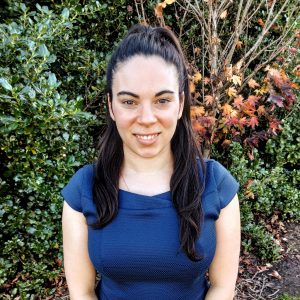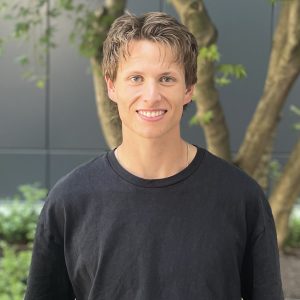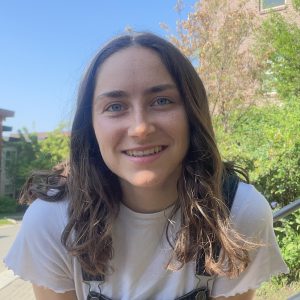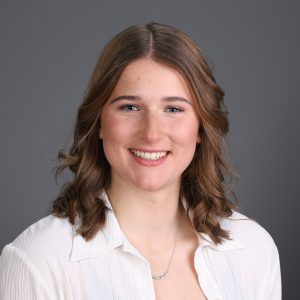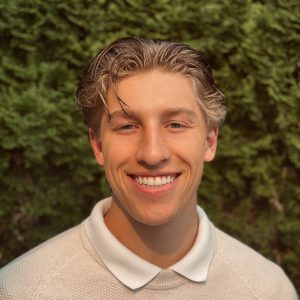How to apply
The UBC Okanagan Stober Undergraduate Research Fellowships have been established as a catalyst for excellence in health-related research and undergraduate student training within the School of Health and Exercise Sciences. The purpose of these awards is to introduce highly-talented international, national or local undergraduate students to research opportunities and the merits of pursuing a future MSc in our School. Thus, students with at least 12 months left in their program are strongly encouraged to apply. Students finishing their degree and already committed to a research Master’s program will also be considered but will not be considered a priority.
The School of Health and Exercise Sciences is committed to the truth and reconciliation process and calls to action for decolonization. Equity, diversity, inclusion, anti-racism, and anti-oppression are essential to academic excellence and research pursuit, and are core values of our School. An open and diverse community fosters the inclusion of voices that have been underrepresented or discouraged. We strongly encourage applications from students who identify as a member of an equity-owed group and/or students who have an interest in research that focuses on advancing our understanding of equity, diversity and inclusion in health research.
• Award is for the spring/summer months (i.e., May-August) apart from applicants from international institutions in the southern hemisphere who may use the award over the fall/winter months (in Canada).
• Awardees are expected to come to UBC-O during the duration of the award to experience UBC-O, the laboratory they are in and interact with other students in the SURF program.
• Awards cannot be deferred to another year.
• Awardees complete a minimum of 12 weeks and up to 16 weeks of research training on a health-related research project. Awards will vary between ~$7,250 and ~$9,500, depending on the number of weeks.
• Up to $1,500 is available to help offset travel expenses associated with relocating to UBC Okanagan (e.g., airfare, mileage, meals while travelling) and/or research expenses directly related to the project.
– Please note: the total award for salary, travel and research expenses cannot exceed $10,000.
• Successfully completed at least 2 years of an undergraduate degree.
• Awardees are expected to commit to full-time research for the duration of the project. Awardees will not be permitted to take more than 3 credits of coursework or other full-time employment during the award.
• Applicants cannot hold a SURF and another research award (e.g., NSERC USRA, IURA) simultaneously or be a previous recipient of a SURF award.
• Academic and extracurricular track record (30%).
• Novelty and feasibility of research proposed (30%).
• Demonstration of interpersonal skills or experience beneficial for research pursuit (40%).
• Please explain throughout the application how equity, diversity, and inclusion have been considered (e.g., in your previous lived, volunteer or community experiences, proposed research, outreach activities, training that you have undertaken etc.).
• Preference will be given to applications external to UBCO (especially international students), but internal applications are also encouraged.
Step 1: Contact an eligible HES faculty member (Dr. Phil Ainslie, Dr. Miho Asano, Dr. Brian Dalton, Dr. Neil Eves, Dr. Glen Foster, Dr. Heather Gainforth, Dr. Hashim Islam, Dr. Jennifer Jakobi, Dr. Mary Jung, Dr. Jonathan Little, Dr. Kathleen Martin Ginis, Dr. Ali McManus, Dr. Chris McNeil, Dr. Robert Shave, Dr. Paul van Donkelaar) to discuss your interest in applying for the award. To learn more about the research interests of each faculty member, visit the HES Contact & People webpage and our meet the team videos.
Step 2: Once you have a commitment from a faculty member to support your application, work with the prospective supervisor to complete the application, which includes the Stober application form, a 2-page CV, and your academic transcripts.
Step 3: Email your complete application to our undergraduate office (hes.undergrad@ubc.ca).
Deadline to apply: Friday, February 21st 2025.
Meet the 2024 SURF Trainees
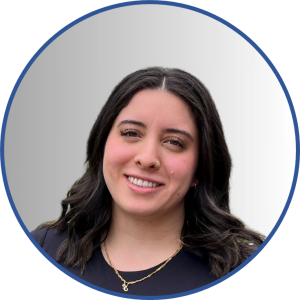 Raj Ahluwalia-Pullam
Raj Ahluwalia-Pullam
Supervisor: Dr. Mary Jung
My name is Raj Ahluwalia-Pullam. My hometown is St. Albert, Alberta. I moved to Kelowna to pursue my undergraduate degree in Health and Exercise Sciences. Following my undergraduate degree, I hope to continue on to do a masters degree related to health science.
One of the research studies I am assisting with data collection on, is testing the efficacy of a community-based diabetes prevention program (Small Steps for Big Changes, SSBC). In addition, as part of this project I aim to explore whether eating time influences eating motives and self-reported hunger levels among individuals with prediabetes before participation in a diabetes prevention program (SSBC). Understanding the impact of eating time on eating motives and satiety may inform the development of dietary recommendations for T2D prevention.
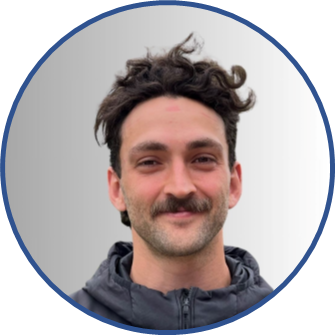 Dan MacCallum
Dan MacCallum
Supervisor: Dr. Neil Eves
I grew up in a small town called Sussex, New Brunswick. I slowly made my way across the country and in the process have developed a passion for learning about human physiology. I intend to complete my undergrad at UBC Okanagan in the Spring of 2025, and continue my studies in Exercise Science research. In the future, I hope to use my education to help young people from all backgrounds pursue health and performance in the activities that they love.
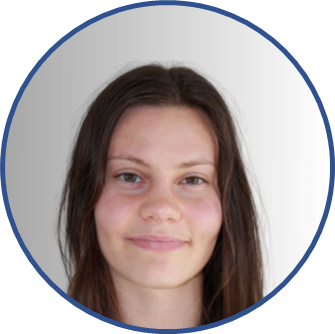 Aliya Mottus
Aliya Mottus
Supervisor: Neil Eves
My name is Aliya Mottus. While home is in Rolleston, I have spent the last four years studying at the University of Otago in Dunedin. Following this opportunity, I hope to pursue a career as a clinical exercise physiologist as both a practitioner and researcher. By working in both realms, I would be able to work with populations first-hand to find new ways of care and management.
Working with Dr. Neil Eves, I will contribute to The UBC Long-distance Triathlon Adaptations Study: The ULTRA Study. This study will investigate changes in exercise ventilatory reserve, breathing patterns, operational lung volumes, diffusion capacity and the work of breathing in previously exercise naïve females compared to males at the 6-month time point (compared to baseline) during one-year of intensive endurance exercise training. This project will improve our understanding of differences in how the respiratory system adapts to exercise in females compared to males. Additionally, it may provide information on how sex differences influence the development and presentation of different respiratory conditions.
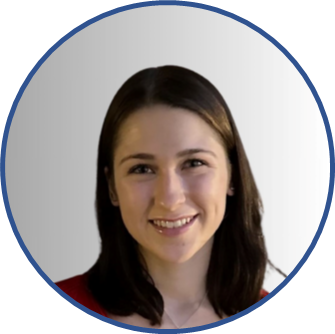 Madison Sagert
Madison Sagert
Supervisor: Dr. Jennifer Jakobi
My name is Madison, and I grew up on a farm in Minitonas, Manitoba. After high school, I moved to Regina for my post-secondary studies. I am a competitive curler having represented Manitoba and Saskatchewan at two different national events, including the 2023 Canada Winter Games. I am most interested in strength training and nutrition. My intended career path changes frequently, but one thing for certain is that I want to help people achieve and maintain a healthy lifestyle. I plan to become a certified exercise physiologist and personal trainer, and potentially enroll in a graduate program to work in the medical field.
This summer, I am investigating muscle and strength differences between limbs in older adults, and whether this imbalance affects their functional ability. I am also interested in how these imbalances originate, for example, the overuse of one limb in a past occupation or as a young athlete. Understanding limb differences is important for all ages to prevent injuries, specifically falls in older adults. The data I collect and analyze this summer may guide me toward future projects studying the creation of exercise programs to address interlimb asymmetries.
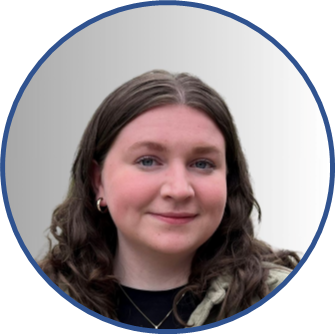 Leah Kinahan
Leah Kinahan
Supervisor: Dr. Mary Jung
My name is Leah Kinahan. I grew up in Spruce Grove, Alberta before moving to Kelowna to attend UBC Okanagan. Growing up as an avid long-distance runner and competitive soccer player drove my interest and passion for health and wellness, which led me to pursue a Bachelor of Health and Exercise Sciences. I will be specializing in Clinical Exercise Physiology. This specialization highlights my deep-rooted passion for understanding human physiology and how the human body responds to exercise, aligning with my future aspirations of pursuing medical school and specializing in cardiovascular surgery.
One in five Canadians have prediabetes, a clinical condition that increases the risk of developing type 2 diabetes (T2D) by up to 70 per cent within five years. Lifestyle modifications aimed at diet and exercise behaviours are proven to prevent the onset of T2D. The Small Steps for Big Changes Program is designed to teach individuals how to be independent exercisers and how to maintain a healthy diet and regular exercise. My research will focus on socioeconomic status and carbohydrate intake, as there is a need to explore food security status in diabetes prevention programs. This exploration will address challenges such as the affordability of optimal diets and achieving long-lasting dietary behaviour change for sustained T2D risk reduction. The findings could provide valuable insights for community-based diabetes prevention programs, highlighting the importance of integrating strategies to mitigate food insecurity.
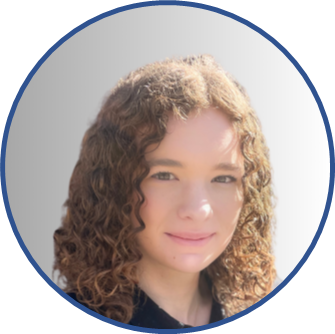 Paige Reekie
Paige Reekie
Supervisor: Dr. Brian Dalton
I am very fortunate to have been raised in the beautiful Okanagan, and to have completed four years of my postsecondary education as an HES student here at UBC Okanagan. Having a professor as a mom, I have been around the university since a young age, and have known since childhood that I was destined to be an academic. Particularly in my teenage years, I fell in love with neurophysiology and longed to learn more about how the body moves.
I first had the opportunity to get involved in research last summer, when I began to plan my Honour’s Thesis with Dr. Brian Dalton in his Sensorimotor Physiology and Integrative Neuromechanics (or SPIN) Lab. Since working with Dr. Dalton, I have had the opportunity to design, lead, and pilot a study investigating the effect of passive ankle exoskeletons on standing balance control. In other words, we are looking at a novel ankle brace to see if it could be used to improve postural control in people with balance deficits. This summer, I will finish data collection and hopefully complete a manuscript which we can submit for publication in the fall.
As an individual living with a movement disorder, I am highly passionate about disability research and hope that I can use my experiences to offer a unique perspective to a field dominated by primarily able-bodied professionals. After graduation next spring, I hope to build upon my current experiences and pursue my dream career as a pediatric physiotherapist and rehabilitation researcher. I hope that this will allow me both to use my education to help kiddos in the clinical setting, while also being able to continue my involvement in the world of academia.
Meet the 2021 SURF Trainees
Amanda Holyk
Conducting a behavioural research study investigating the impact of COVID-19 on the delivery of pulmonary rehabilitation (PR).
“I believe my project will provide important evidence to help optimize in-person and online pulmonary rehabilitation programs across Canada. Utilizing the results of my study, I would like to create Canadian guidelines on how to ideally implement online pulmonary rehabilitation. My overall goal is to help improve the health-related quality of life for people with chronic respiratory disease(s).”
Learn more
Conan Shing
Investigating the factors influencing periodic breathing during sleep at high altitudes.
“My particular project is important as it fills a gap in current literature regarding measures of sleep apnea. Current measures of sleep apnea, like the apnea-hypopnea index (AHI), are a crude and unrefined measure of sleep apnea inaccurately representing its duration and severity. Through this project, I hope to find relationships between AHI and several other variables to discover a more accurate and informative way to present sleep apnea severity.”
Learn more
Jenna Sim
Developing cultural safety and inclusivity training modules in Small Steps for Big Changes diabetes prevention program.
“This project is important because it will test the efficacy and acceptability of a cultural safety and inclusivity training module for coaches of Small Steps for Big Changes (SSBC), a diabetes prevention program. By testing this training module we will determine if it can effectively train SSBC coaches to deliver safe, equitable, and un-biased diabetes prevention care.”
Learn more
kate Crosby
Working to understand the social and physical needs of older adults to optimize active and healthy aging at home.
“This research will further our understanding of how to optimize active and healthy aging at home by increasing our understanding of the social and physical supports for aging. My project will benefit older adults by providing information which will maintain a level of independence and stay in the comfort of their own home.”
Learn more
 Raj Ahluwalia-Pullam
Raj Ahluwalia-Pullam Dan MacCallum
Dan MacCallum Aliya Mottus
Aliya Mottus Madison Sagert
Madison Sagert Leah Kinahan
Leah Kinahan Paige Reekie
Paige Reekie